Director Shawna Lucey Tackles the ‘Impossible:’ Parenthood and Opera
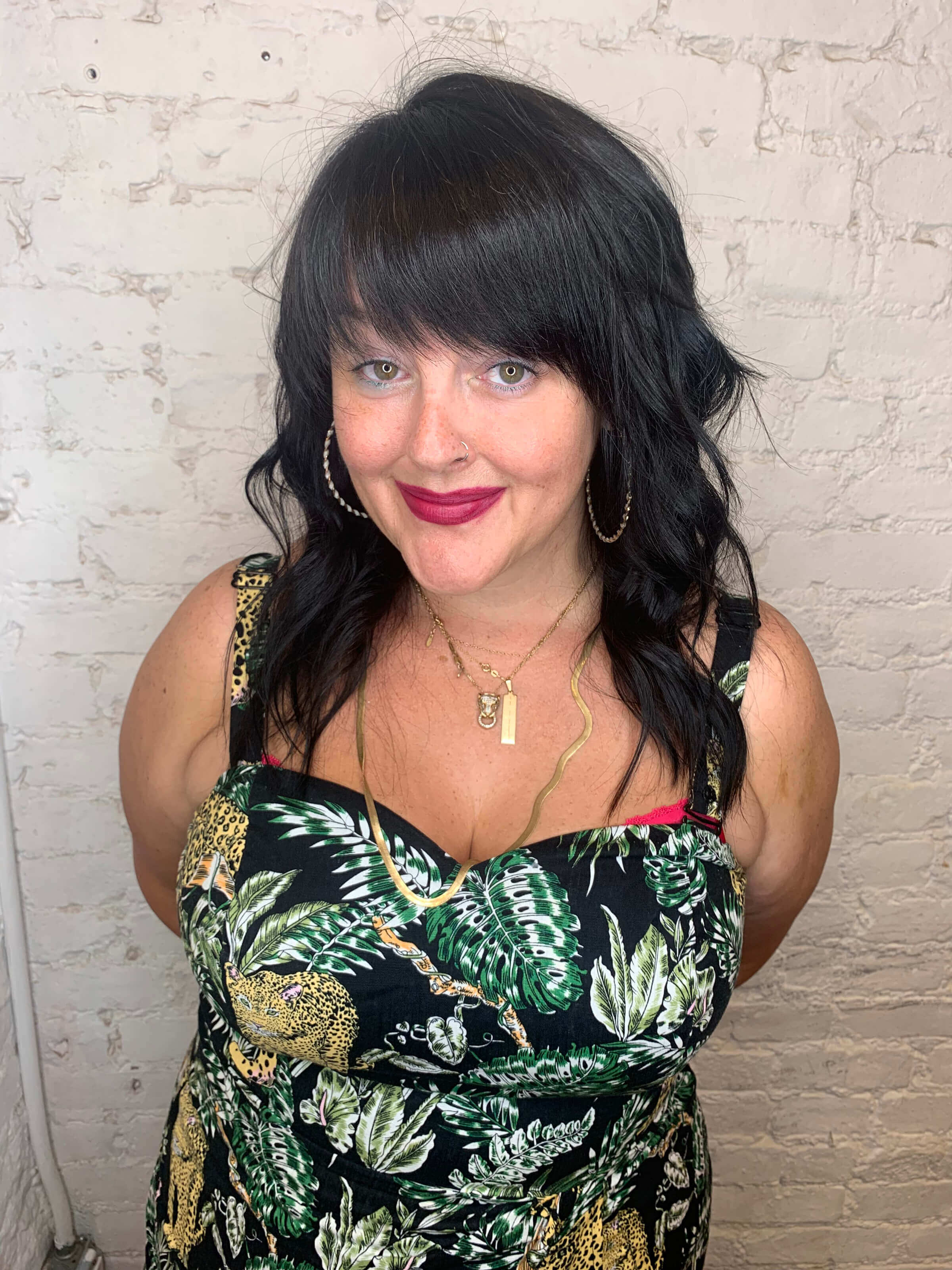
But her partner had another suggestion: “I want to have a baby.” Lucey’s first reaction was disbelief. “That’s a funny thing to tell a kid,” she remembers joking. But then, she surprised herself: “Okay, let’s do it.”
A year later, on June 24 at 8:31 p.m., baby June James Bisila Adjeley McNamara Lucey-Sowah was born.
It’s been barely a month since she entered the world, but already, June James is forging a career in the arts. She sits in on Zoom calls with theater designer Robert Innes Hopkins, chortles her way through interviews with Mom, and even hopped on a plane to the Bay Area, where Lucey is preparing to stage her 2018 production of Tosca. That production, custom-built for the San Francisco Opera stage, is set to open the Company’s 99th Season.
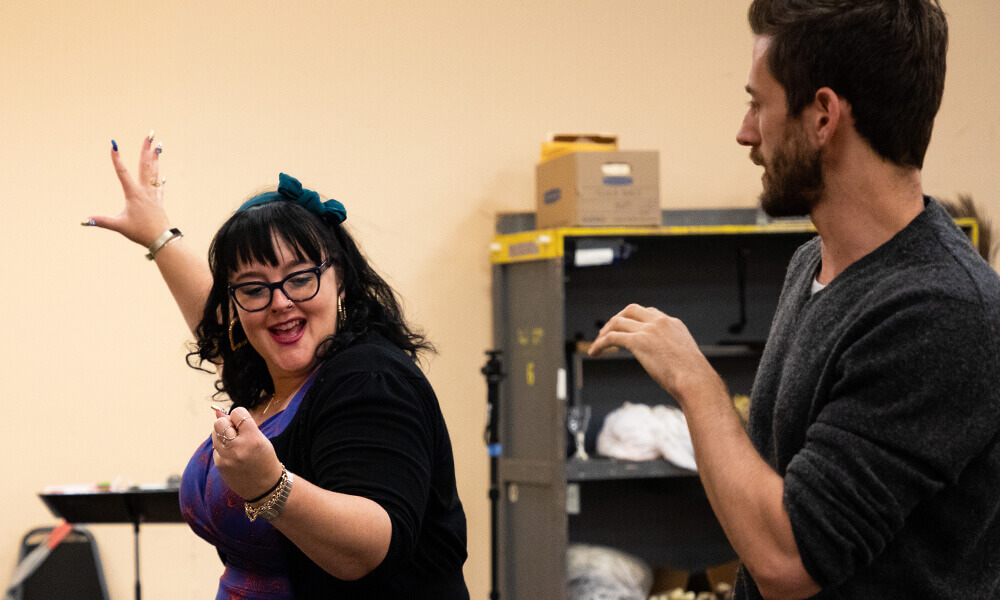
It’s “full-contact sport kind of lifestyle,” for both Lucey and June James. But that’s always been part of Lucey’s philosophy: From her fashion sense to her theater work, she finds herself drawn to bold, unapologetic statements.
And that’s what she aims to do with 2021’s Tosca, starring Ailyn Pérez in the title role. Her Tosca may be a period piece, sure, but don’t let that fool you, she warns.
“When I'm tackling these great opera war horses, I'm always thinking to myself, ‘Why are we doing this again today? What is there in this story that resonates for our audiences today?’ Not the audiences of 1988, not the audiences of 1952, but the audiences of today,” Lucey says.
Her answer has everything to do with the world she hopes her daughter will grow up in. “I hope for a more just and equitable country for her to live in,” Lucey explains.
“She is a biracial child. I want her to not experience the tragic and harmful practices of this country that have existed throughout its history, that would prevent someone like her from living freely and equally in every way possible.”
For Lucey, it all comes down to systemic corruption, the way the certain groups hoard power while denying it to others. And that’s a theme Lucey sees coursing through Tosca.
Lucey herself grew up in Houston, Texas, the grandchild of Irish immigrants. It was a musical household, full of bagpiping and fiddling. Lucey herself was in line to follow the family tradition, until her mother put her foot down: “Please, for the love of God, it’s enough with the bag-piping in the family.” She took up the harp instead.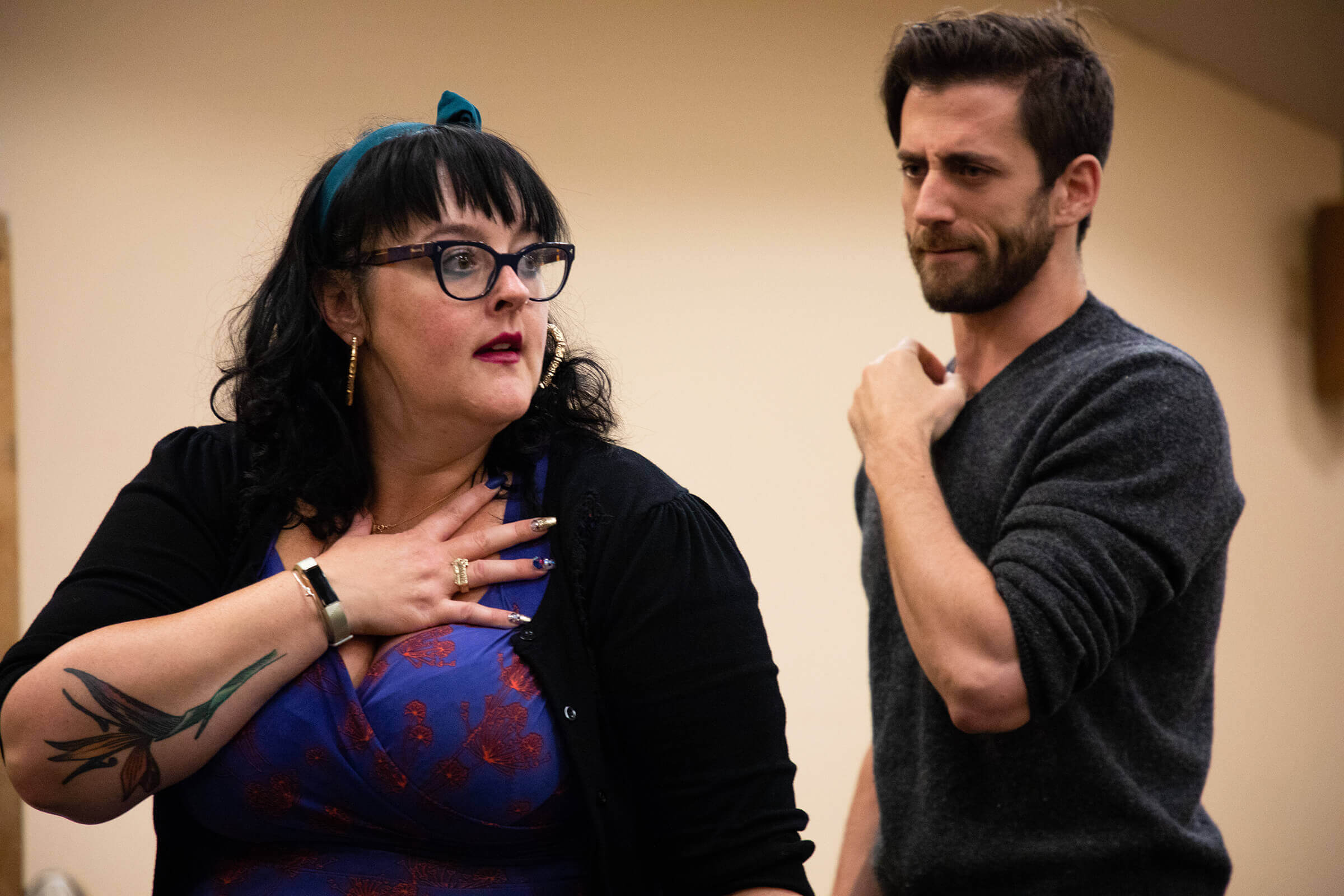
Passionate about plays and ballet, Lucey found herself at home in the theater. But initially, opera was not on her radar. She had glancing encounters with it—doing wardrobe backstage at an undergraduate production of The Coronation of Poppea, for instance—but the medium didn’t call to her. It was not love at first sight.
That is, not until she reached graduate school. One of her mentors there encouraged her to pursue opera. Lucey was adept at languages—she had written a thesis in Russian—and she could read music. With those skills, opera seemed like a natural fit.
There was one problem. “I didn’t know anything about it,” Lucey says. Nevertheless, she applied for and received a technical apprenticeship at Santa Fe Opera.
“So off I go to the Santa Fe Opera, not knowing anything about Santa Fe or the opera. Our first assignment basically was to set up and then sit in an orchestra reading of Verdi’s Falstaff. And I was like, ‘Excuse me? The job is to listen to this every day? That's the job? Sign me up.’”
But during those early years working in opera at Santa Fe, she noticed something: “I never saw a female director.” That lack of representation in leadership was apparent elsewhere too. The same was true—if not more so—for people of color.
“For me, it was infuriating over the years, the inequity of all of it. But it also put a fire under my butt,” Lucey says. She kept thinking back to her grandfather, the toughest man she knew. In his thick Irish brogue, he used to tell Lucey: “Now, people will tell you that you can’t do the same thing a man can. You know what they are? Liars.”
“People always talk about, ‘Oh, opera's dying, opera's dying.’ It's not going to die if we do what needs doing, which is a radical diversification,” Lucey says. “Opera needs diversification in order to tell the stories of the American public, of the American life. It is necessary. It is high time. It is overdue in every way, shape, and form.”
Over the years, Lucey says she’s worked on several productions of Tosca—all of which were directed by men. So when San Francisco Opera approached her to create a new production—the Company’s first departure from classic designs that date back to 1923—she knew exactly what she wanted to do.
“I really wanted to focus on telling the story in a way that felt real and authentic specifically for the women in the audience,” she says. It was 2018. The #MeToo movement—founded by activist Tarana Burke to denounce sexual assault—was at its height. Tosca felt like the perfect opportunity to address the violence women faced.
Tosca is the story of a young singer whose life is shattered when a corrupt police chief singles her out as his latest target. She is brought to his office, and while her boyfriend is tortured in a neighboring room, the police chief attempts to coerce her into sex. In that tale of heartache, Lucey saw a mirror for the present day.
She found herself thinking of the parade of high-powered men whose abuses were suddenly front-page news. She thought of Matt Lauer, the former TV anchor accused of luring women into his office—and then using a button under his desk to lock them in.
“I wanted to honor the experience of all the women who had been locked in offices with men over the centuries, if not millennia,” Lucey explains.
That meant taking a hard look at the opera’s primary villain, the police chief Baron Scarpia. She wanted her production to emphasize that his attempted rape of Tosca was not a one-off—rather, that it was part of a pattern of behavior that persists to this day.
“It was really important to me to understand that, with someone like Scarpia, it is not a random act when he attempts to sexually assault Tosca,” Lucey says. “It's not because he's a mustache-twirling villain. It’s because he is someone in power who rose to power with the inherent expectation of abusing that power.”
Lucey arranged the scenes in Scarpia’s office to reflect that power—and the structures in place to support it. In her version of Tosca, it’s clear that everyone in Scarpia’s office knows exactly what is going on. They allow it to continue. Tosca was not his first victim.
“What I wanted to emphasize with the piece was Scarpia’s use of sexual violence in order to control the population, as a tool,” Lucey explains.
Lucey and production designer Robert Innes Hopkins also took pains to emphasize Scarpia’s corrupt leadership of the police force. The first time Lucey remembers encountering Tosca, she had been protesting as part of the Occupy Wall Street movement. Her experience with the police during those protests were eye-opening.
“I was shocked. I was under-prepared for the way we would be treated,” she says. That, combined with torture scandals during the Iraq and Afghanistan wars, helped shape her understanding of the opera.
“With the scenes of torture [in Tosca], I thought to myself, ‘This isn't just a tenor screaming operatically offstage.’ The Abu Ghraib scandal had happened,” Lucey recalls. “We as Americans, our taxpayer dollars are implicated in torture. And so it seemed to me that the themes of the piece were quite relevant for an American audience to contemplate.”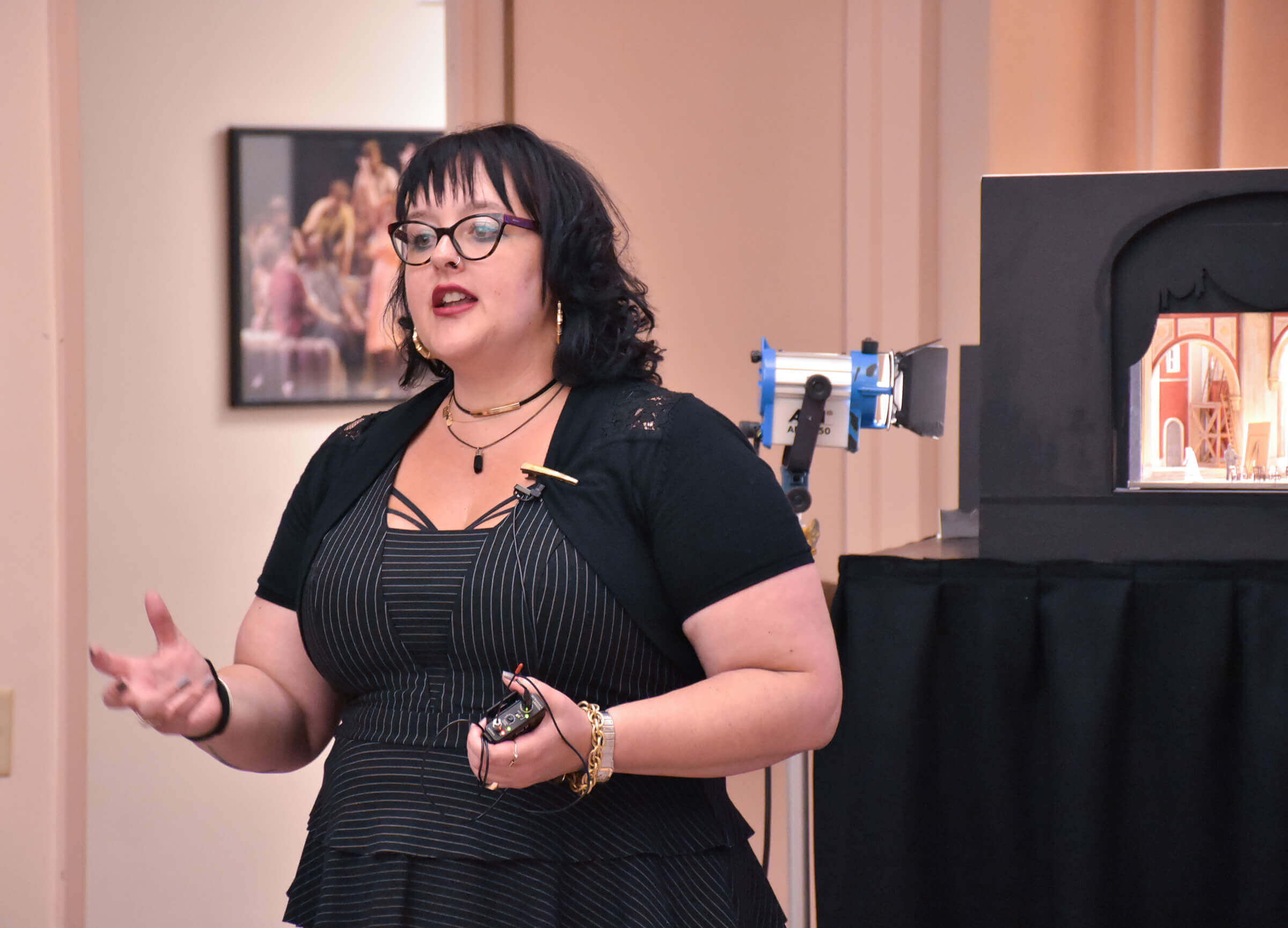
And yet—in 2018, when it came time to stage her production—Lucey didn’t want to hit audiences over the head with politics or sloganeering. Instead, she aimed to create a traditional production that still felt familiar to viewers today, no matter their backgrounds.
To do that, she ditched some of the flourishes and set pieces that typically accompany productions of Tosca. Her Act I didn’t take place in the usual Sant'Andrea della Valle, a Roman church bedecked in soft pinks, greens, and golds. She opted instead for the aesthetics of blood-red Sicilian church.
Likewise, Lucey’s vision of Rome wasn’t a runway for fashionable empire-waist dresses. Rome was in a time of war: The fashion was much more low-key. No great loss there, Lucey laughs: “I myself hate the empire waist.”
And then there was Scarpia’s office, cluttered with paintings and gold objects. Though the production never makes it explicit, Lucey imagines these to be the spoils of his corruption: wealth Scarpia accumulated by exploiting his office.
But more important than anything was nailing the depiction of the opera’s title character, Tosca. In Lucey’s mind, Tosca’s deep adherence to Catholicism makes all her actions particularly poignant. In one climactic scene, Tosca stabs Scarpia rather than submit to his assault. It’s a turning point for her character.
“She is a person of faith. So to take on the role as a murderess, to kill someone, that is a grave, grave sin,” Lucey explains. “As a Christian, you’re supposed to turn the other cheek. That’s what Jesus said. So she should have turned the other cheek, but she doesn’t. She fights back.”
In an operatic canon full of violence against women, that act sets Tosca apart, says Lucey. “That makes this piece totally different for me. It’s different than Cio-Cio San. It’s different than Violetta. It’s different than every other operatic heroine, because she rocks her own femininity and goes against the rules of her faith to fight back.”
The story of a woman fighting impossible odds may not sound all that unfamiliar to Lucey, as a new mom preparing to stage a full-scale opera. But just as becoming a parent seemed impossible a year ago, she feels that juggling parenthood and work may not be as impossible as it looks.
“Listen, producing theater is hard work. It has always been hard work. But that's the glory of it, right? It’s that you're doing these impossible tasks,” she says. “So the task of making theater seems impossible, and the task of parenting seems impossible in general as well. So they go great together.”
It’s all about collaboration—and opera, as Lucey points out, is a collaborative art. Besides, since June James was born, she’s looking on the bright side. Even systemic issues that seem insurmountable can be changed with time and effort. And June James has Lucey herself advocating all the more passionately for a better future.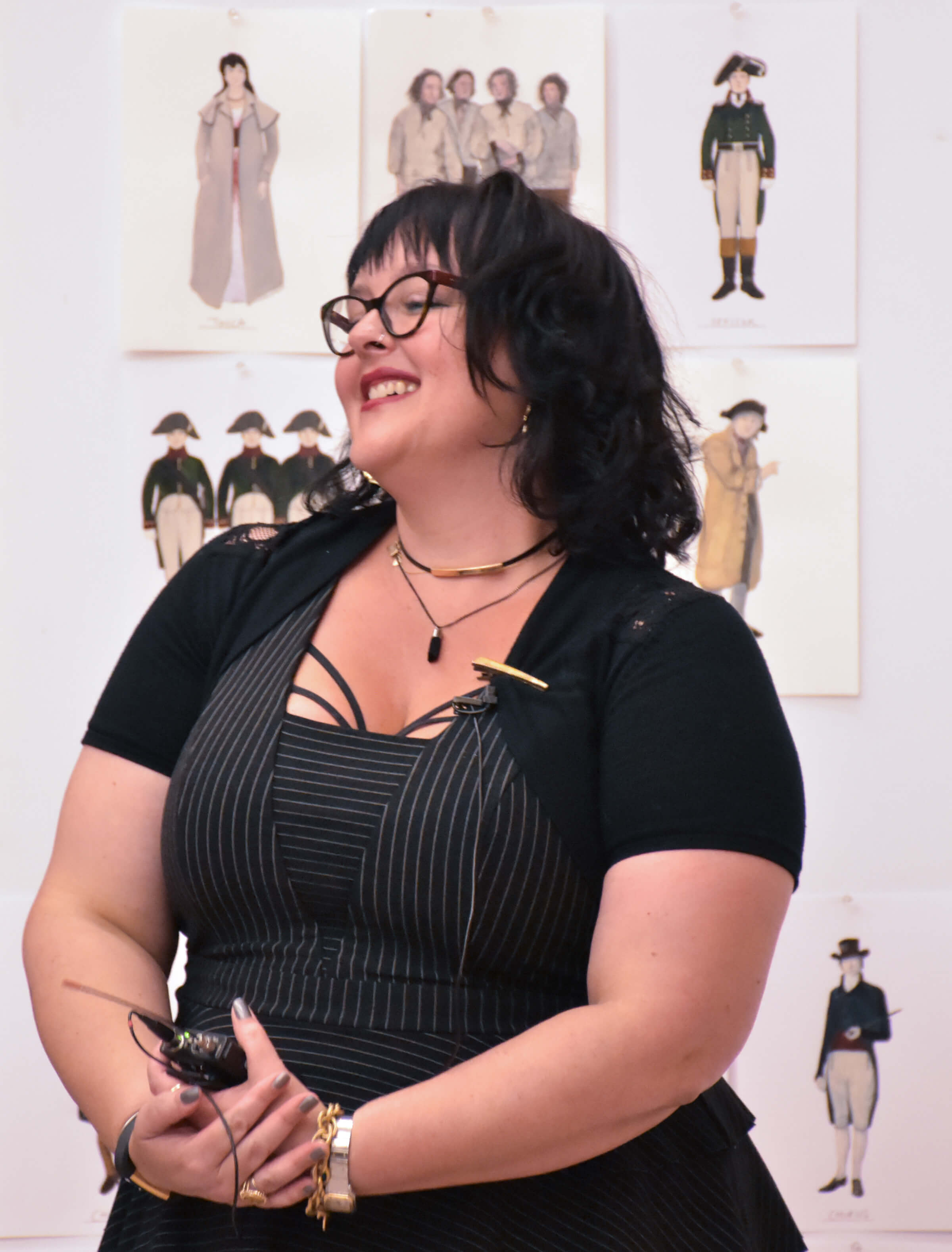
“We’ve got to keep pushing,” she says. “Yes, it is a little terrifying to bring a child into this world, but it is also a commitment to saying, ‘We're not going to give up.’”
Get to know director Shawna Lucey through her website or follow her adventures on social media. To purchase tickets for her production of Tosca, please visit sfopera.com/tosca.

